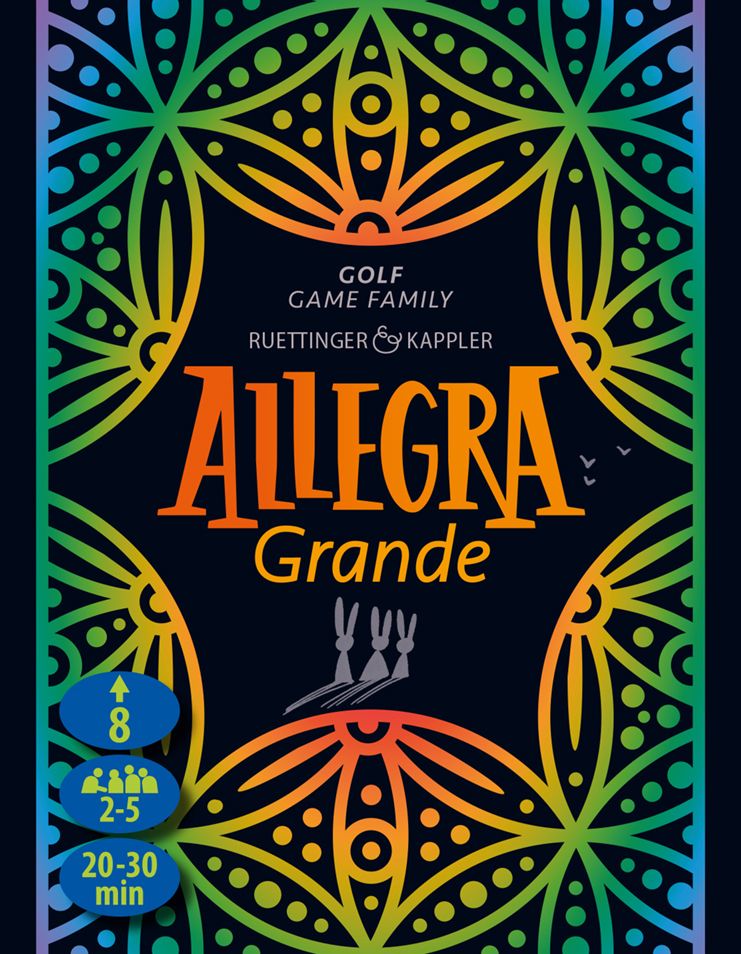ALLEGRA Grande (Import)
Products title that includes 'PRE-ORDER' is subject to our Pre-order Policy
Couldn't load pickup availability
Delivery and Shipping
Delivery and Shipping
For more details, please refer to our Shipping and Order Information.
Pre-Order Policy
- Pre-order items are charged at the time the order is placed.
- Prices for pre-order items are subject to change based on final landed costs.
- If the final price is lower, the difference will be refunded to the customer in the form of store credit.
- If the final price is higher, customers will be given the option to either:
- Pay the difference, or
- Cancel the item for a full refund.
- Orders containing pre-order items will be placed on hold until all items in the order are available.
- Once all items have arrived and pricing remains unchanged, the order will be automatically shipped.
- Pre-orders are fulfilled on a first-come, first-served basis.
- If a pre-ordered item becomes unavailable (e.g., the publisher cancels the product), a full refund will be issued.
- Pre-orders may be cancelled and refunded by customers or the store.
- For transactions that are no longer eligible for direct refunds due to payment processor limitations, a store credit will be issued instead.
Description
Description
| Designer |
Kathi Kappler Johann Rüttinger |
| Publisher | Drei Hasen in der Abendsonne |
| Players | 2-5 |
| Playtime | 20-30 mins |
| Suggested Age | 8 and up |
Note: This game is in English and German.
In ALLEGRA Grande, based on the traditional card game „Golf“, you want to keep the score in your display as low as possible.
The deck consists of cards numbered from -2 to 13.
In each round, each player starts with 16 unknown cards facing down. The cards are placed in a grid of 4x4.
Before the game starts, each player randomly turns around two cards.
The left player from the dealer starts the game.
In each turn, we draw 2 cards (either both from the drawing pile or both from the discard pile, or one from the discard pile and one from the drawing pile; here, the order mentioned is binding—first from the discard pile than from the drawing pile) and play them one after another.
But if one player has just one closed card left in the display, he can just draw one card.
We want to reduce the score in the display and/or clear rows or columns.
In ALLEGRA Grande, with its 4x4 (or even 4x5 with 2 players) display, one can clear 4 (or even 5) of the same cards in a row or in a column. Here, you must be careful how to place the cards because you must immediately clear a set of three cards as soon as they are next to each other in a row or column—even if you wanted to collect four cards and clear them later.
To clear four cards, there first must be a gap between them, for example: „3, 4, 3, 3“.
As soon as the 4 in this row is replaced with another 3, all four threes can (must) be immediately cleared.
With 5 cards, it could look like this: „3, 3, 4, 3, 3“. Here it's the same; as soon as the 4 in this row is replaced with another 3, the complete row can (must) be cleared.
This makes chain reactions possible (as seen in the images). It is possible to clear all 16 cards through one chain reaction, but trying it is risky.
We have 3 action cards. The cards could be used as a normal card with just their value or can be activated to use their ability.
The activation just works when the action card is drawn from the drawing pile and is immediately discarded in the same turn to the discard pile. (no activation when drawn from the discard pile or opened in the display!).
After the action, one must open one closed card from the display; it could be any closed card.
The -2:
It's the lowest card, and it's just 4 times in the deck. The -2 allows you to look secretly at all the closed cards in one row or column. Clearly, the next player can now draw this -2 from the discard pile, and he probably will.
The 5:
It is the most common card; it is played 16 times in the deck. Here, one is allowed to look at one closed card secretly.
The 13:
It's a little bit more special than the others. It is the highest card and 10 times in the deck. The action is to discard one open card from the display and replace it with one card from the drawing pile, and this card must stay closed. After that action, no closed card is allowed to be turned open. This is the only possible way to get one more closed card than before. For example in the end of the game when one player has just one closed card left and is just allowed to draw one card out of this reason he can with the 13 get back one more closed card and is allowed to draw 2 cards again.
The Joker:
This card simply stands for every card, but not their actions. If the Joker is next to two identical cards, he immediately mimics them, and one must clear that set. For example „6, J, 6, 1“ the Joker mimics the sixes next to him and you must clear the three cards. So be careful where to place the Joker.
The Swap: Swap 2 cards in your display:
Instead of drawing two cards, one can also swap two cards in their own display. After that, one must open a closed card. Do it before it's too late.
The swap is also perfectly suitable to swap the Joker to the perfect place.
Sometimes one needs to do the so-called „dodging“.
This allows you to replace a card two times at the same place on the display. This also allows you to „defuse“ the action of an action card (especially the 13) when you place the action card first in the display and then again replace the action card with the other card. That means you are allowed to indirectly discard an action card and of course it just works as long as you can draw two cards.
Contrary to the first „ALLEGRA“, we play just in our own display (no column that belongs to a neighbor, and no knocking to switch a card with a player).

